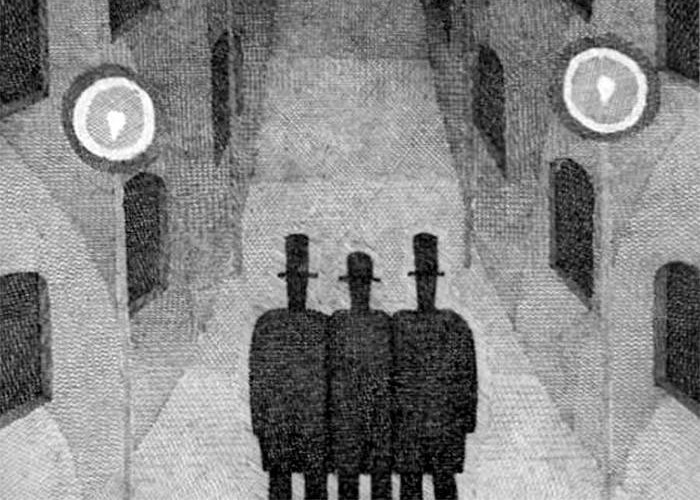
I first picked up Kafka in my third year of college, at a rented dacha in Sheremetyevo. It was January, but I remember hearing those thawing drops drumming on my window sill; from time to time, cats screamed terribly. In the evenings, the owners drank vodka behind the wall and watched hypnosis sessions. At first, they looked in on me, to invite me to join them, but I was discouraged by my studies, although I passed my session early. Outside the thawed window, branches of the garden were black and swayed in the breeze, the stars burned brightly between the clouds. Sometimes landing airplanes seemed to crush the dacha, everything in it danced and rattled like in a thunderstorm, and dust fell from elk antlers above the mantelpiece. I turned the last page of “The Trial” and realized that I had just finished reading a biblical text. That’s when it occurred to me that literature is something that is no less involved in the creation of the world than the Big Bang once was. This realization began with Kafka, probably because in him the power of creation of the literary universe is as clear as the tension of a string in a violin concerto. After all, the novel “Amerika” was written on the basis not of personal experience but of an understanding of experience in general. Kafka is an impossible writer per se – because of the key, the hook on which he catches the reader – go to the root of the matter without pity for oneself and the world; he does not so much cheer one up as make it clear what the world really is: the bottom from which one can only push away. In other words – in Tsvetaeva’s words: “To your crazy world/There is only one answer – refusal.” But Kafka goes further: he pushes himself away from the refusal itself and somehow manages to soar at the expense of the ritual of surprise. There was an episode in a German concentration camp. Jewish prisoners gathered to celebrate the Sabbath. But before beginning, they decided to discuss a vital question: Is there God or is there no God? And they concluded that there was no God. And then there was a pause. No one knew what to do next. But somehow it happened by itself that everyone sighed and began to recite the Sabbath prayer… Isn’t the author of this story Kafka? Doesn’t Kafka give us something more than belief in a good or not-so-good ending? He gives us something more reliable than the world itself – an understanding of the world.

Alexander Ilichevsky (1970) is the author of ten novels, four collections of essays, three collections of short stories, and five books of poetry. He is the recipient of many awards, including the magazines New World (2005) and Znamya (2011), the Yuri Kazakov Award for Best Story (2005), the Russian Booker Prize for the novel Matisse (2007), the Russian national Big Book Award for the novel Pers (2010) and the novel Newton’s Blueprint (2020), and the Israeli Yuri Stern Prize (2015). His recent works are the short story collection From the Ship’s Journal and the novel Plato’s Body (2023).
Launched in 2012, “Four Centuries” is an international electronic magazine of Russian poetry in translation.
“The Lingering Twilight” (“Сумерки”) is Marina Eskin’s fifth book of poems. In Russian.
A collection of moving, often funny vignettes about a childhood spent in the Soviet Union.
“Vivid picture of life behind the Iron Curtain.” —Booklist
“This unique book will serve to promote discussions of freedom.” —School Library Journal
A new collection of poems by Ian Probstein. (In Russian)
Young readers will love this delightful work of children’s verse by poet William Conelly, accompanied by Nadia Kossman’s imaginative, evocative illustrations.
A book of poems by Maria Galina, put together and completed exactly one day before the start of the Russian invasion of Ukraine. This is Galina’s seventh book of poems. With translations by Anna Halberstadt and Ainsley Morse.